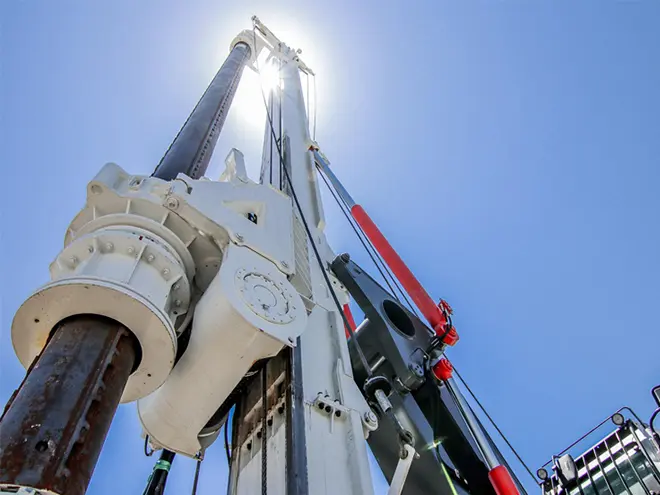Oil drilling bits play a key role throughout all stages of oil extraction, from exploration to production, and their performance has a direct impact on the efficiency, cost and safety of drilling. As one of the well-known oil and gas drill bit manufacturers, KING SML TOOLS continuously innovate its technology and is committed to providing customized drilling solutions for customers.
Drill bits have various applications in the petroleum industry. Here are some common applications:
Drilling Oil Wells: Drill bits are used to penetrate hard underground rock layers to reach oil and gas reservoirs. Different types of drill bits (such as roller cone bits, diamond bits, etc.) can be selected based on the hardness of the formations and geological conditions.
Formation Evaluation: During drilling, drill bits collect rock cuttings by penetrating the formations. These samples are used for geological analysis, helping to assess the properties and potential of the reservoir.
Well Expansion: By connecting the drill bit to reaming tools (such as a reamer), the well bore can be enlarged to facilitate casing installation or improve well stability.
Wellbore Maintenance: Drill bits are also commonly used in wellbore maintenance operations, such as clearing obstacles in the wellbore or re-drilling collapsed formations, ensuring the normal production of oil wells.
Other Special Applications: Drill bits can be attached to various tools, such as core bits for extracting core samples from the formation, or eccentric bits for directional drilling, enabling precise well placement and guidance.
Here are the most common types of drilling bits used in the petroleum industry:
Tricone Bit
Tricone bits are the most commonly used type of drill bit in rotary drilling operations. This type of bit features various tooth designs and bearing types to adapt to different geological formations. Tricone bits are divided into two types based on the tooth design: steel tooth bits and TCI bits (Tungsten Carbide Insert bits). Steel tooth bits are suitable for soft to medium-hard formations, while TCI drill bits, made with extremely hard tungsten carbide inserts, are ideal for harder and more complex formations.
PDC Bit
PDC bits are widely used in oil drilling due to their fast drilling speed, long lifespan, and efficient performance. Embedded with synthetic diamond cutters, the PDC drill bit performs exceptionally well in abrasive formations and soft to medium-hard rock layers.
Hybrid Bit
Hybrid bits are designed to combine different types of cutting elements to adapt to changing geological conditions and enhance drilling efficiency. These bits often incorporate materials such as diamond composite materials, roller cones, and PDC (polycrystalline diamond compact) cutting inserts.
The selection of the correct drill bit is vital for optimizing oil drilling operations. Key elements include:
Formation Type: Each formation (soft, medium, or hard) necessitates a distinct drill bit. Roller cone bits are preferable in softer formations, although PDC or diamond bits may be required in tougher formations.
Drilling objectives: The goal of drilling (exploration, production, or directional) determines the bit selection. Directional drilling demands precision, whereas production drilling prioritizes durability.
Drilling parameters: Consider the rig's weight on bit (WOB), rotation speed (RPM), and hydraulics. To get optimal performance, the drill bit must meet these requirements.
Cost and Performance: Select a bit that balances cost and performance. While PDC bits may have higher initial costs, their efficiency and longer longevity can result in greater overall value.
You may also be interested in mining drill bits, drill bit for water well, tooth bit, PDC cutters, etc.
